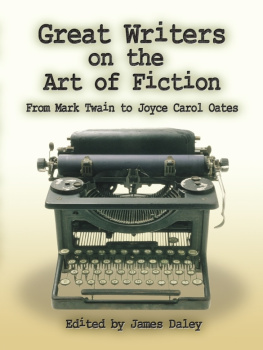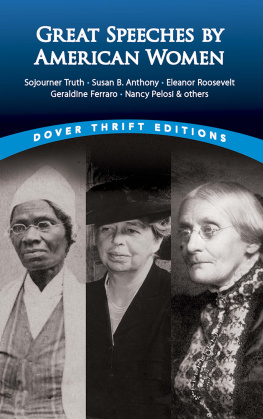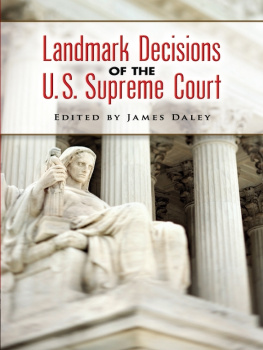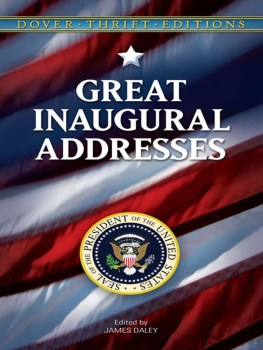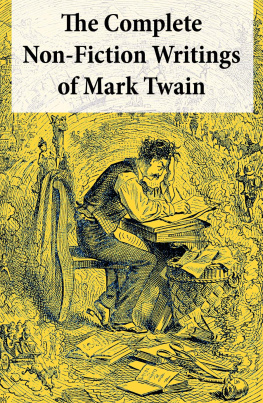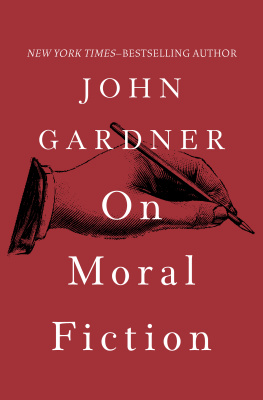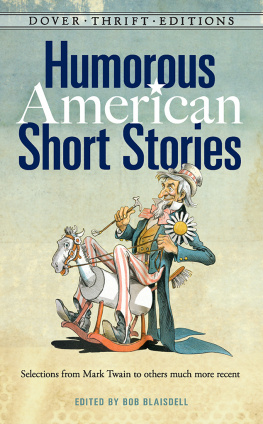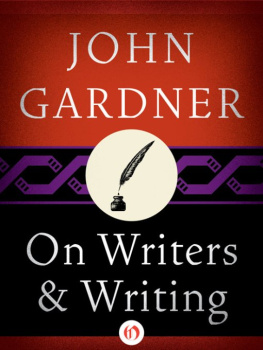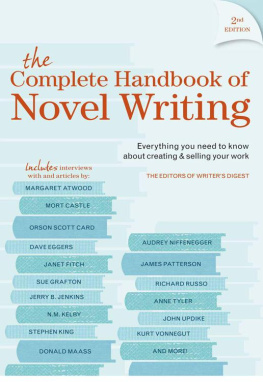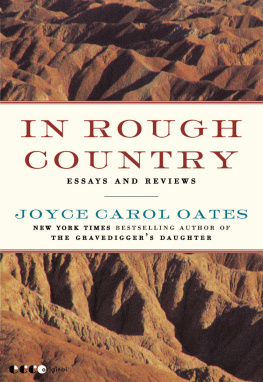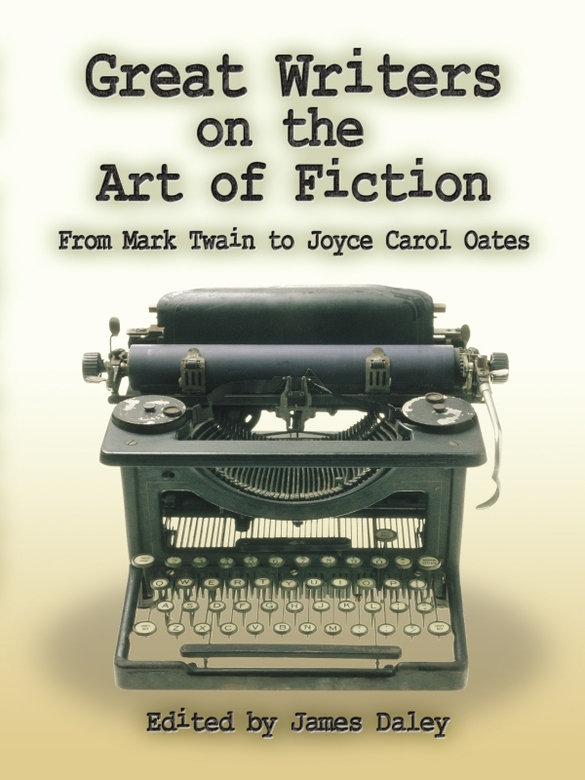The Simple Art of Murder from The Simple Art of Murder by Raymond Chandler. Copyright 1950 by Raymond Chandler, renewed 1978 by Helga Greene. Reprinted by permission of Houghton Mifflin Company. All rights reserved.
To a Young Writer from On Teaching and Writing Fiction by Wallace Stegner (Penguin, 2002). Copyright 1959 by Wallace Stegner. Reprinted by permission of Don Congdon Associates, Inc.
Words into Fiction from The Eye of the Story by Eudora Welty, copyright 1978 by Eudora Welty. Used by permission of Random House, Inc.
On Writing from Fires by Raymond Carver. Reprinted by permission of International Creative Management, Inc. Copyright 1981 by Raymond Carver.
How to Write with Style from Palm Sunday by Kurt Vonnegut, copyright 1981 by Kurt Vonnegut. Used by permission of Dell Publishing, a division of Random House, Inc.
Nobody to Nobody from Negotiating with the Dead by Margaret Atwood. Copyright by O. W. Toad, Ltd. Reprinted with the permission of Cambridge University Press.
Getting Started by John Irving, reprinted from Publishers Weekly, February 2006. Copyright Reed Business Information, a division of Reed Elsevier, Inc. All rights reserved.
Running and Writing from The Faith of a Writer by Joyce Carol Oates. Copyright 2003 by The Ontario Review, Inc. Reprinted by permission of HarperCollins Publishers.
EDGAR ALLAN POE (180949)
THE PHILOSOPHY OF COMPOSITION
Known primarily for his poetry and short stories, Edgar Allan Poes influence on literature cannot be overstated. His masterful short mystery, Murders at the Rue Morgue , gave rise to the entire genre of detective fiction, while his iconic poem, The Raven , is still at the apex of literary horror and suspense. His work has influenced a great diversity of writers: Poets such as W. H. Auden, Charles Baudelaire, and Walt Whitman, as well as fiction writers like Franz Kafka, William Faulkner, and Fyodor Dostoyevskyhave all spoken of Poes powerful impact on their work.
In the essay that follows, Poe contends that good writing is not achieved by ecstatic intuition, as some writers would have their readers believe, but through careful planning and consideration, executed with purposeful intention. To illustrate this point, Poe provides a step-by-step dissection of his own writing process during the composition of The Raven , explaining how he moved towards completion with the precision and rigid consequence of a mathematical problem.
Charles Dickens, in a note now lying before me, alluding to an examination I once made of the mechanism of Barnaby Rudge, says: By the way, are you aware that Godwin wrote his Caleb Williams backward? He first involved his hero in a web of difficulties, forming the second volume, and then, for the first, cast about him for some mode of accounting for what had been done.
I cannot think this the precise mode of procedure on the part of Godwin, and indeed what he himself acknowledges is not altogether in accordance with Mr. Dickenss idea; but the author of Caleb Williams was too good an artist not to perceive the advantage derivable from at least a somewhat similar process. Nothing is more clear than that every plot, worth the name, must be elaborated to its dnouement before anything be attempted with the pen. It is only with the dnouement constantly in view that we can give a plot its indispensable air of consequence, or causation, by making the incidents, and especially the tone at all points, tend to the development of the intention.
There is a radical error, I think, in the usual mode of constructing a story. Either history affords a thesis, or one is suggested by an incident of the day, or, at best, the author sets himself to work in the combination of striking events to form merely the basis of his narrative, designing, generally, to fill in with description, dialogue, or authorial comment, whatever crevices of fact or action may, from page to page, render themselves apparent.
I prefer commencing with the consideration of an effect. Keeping originality always in view,for he is false to himself who ventures to dispense with so obvious and so easily attainable a source of interest,I say to myself, in the first place: Of the innumerable effects, or impressions, of which the heart, the intellect, or (more generally) the soul is susceptible, what one shall I, on the present occasion, select? Having chosen a novel, first, and secondly a vivid effect, I consider whether it can be best wrought by incident or tone,whether by ordinary incidents and peculiar tone, or the converse, or by peculiarity both of incident and tone; afterward looking about me, or rather within, for such combinations of event, or tone, as shall best aid me in the construction of the effect.
I have often thought how interesting a magazine paper might be written by any author who would, that is to say, who could, detail, step by step, the processes by which any one of his compositions attained its ultimate point of completion. Why such a paper has never been given to the world I am much at a loss to say, but perhaps the authorial vanity has had more to do with the omission than any one other cause. Most writers, poets in especial, prefer having it understood that they compose by a species of fine frenzy, an ecstatic intuition, and would positively shudder at letting the public take a peep behind the scenes at the elaborate and vacillating crudities of thought; at the true purposes seized only at the last moment; at the innumerable glimpses of idea that arrived not at the maturity of full view; at the full matured fancies discarded in despair as unmanageable; at the cautious selections and rejections; at the painful erasures and interpolations,in a word, at the wheels and pinions, the tackle for scene-shifting, the step-ladders and demon-traps, the cocks feathers, the red paint and the black patches which, in ninety-nine cases out of the hundred, constitute the properties of the literary histrio .
I am aware, on the other hand, that the case is by no means common in which an author is at all in condition to retrace the steps by which his conclusions have been attained. In general, suggestions, having arisen pell-mell, are pursued and forgotten in a similar manner.
For my own part, I have neither sympathy with the repugnance alluded to, nor, at any time, the least difficulty in recalling to mind the progressive steps of any of my compositions; and, since the interest of an analysis, or reconstruction, such as I have considered a desideratum, is quite independent of any real or fancied interest in the thing analyzed, it will not be regarded as a breach of decorum on my part to show the modus operandi by which some one of my own works was put together. I select The Raven as most generally known. It is my design to render it manifest that no one point in its composition is referable either to accident or intuition, that the work proceeded, step by step, to its completion with the precision and rigid consequence of a mathematical problem.
Let us dismiss, as irrelevant to the poem per se, the circumstance, or say the necessity, which, in the first place, gave rise to the intention of composing a poem that should suit at once the popular and the critical taste.
We commence, then, with this intention.
The initial consideration was that of extent. If any literary work is too long to be read at one sitting, we must be content to dispense with the immensely important effect derivable from unity of impression; for, if two sittings be required, the affairs of the world interfere, and everything like totality is at once destroyed. But since, ceteris paribus, no poet can afford to dispense with anything that may advance his design, it but remains to be seen whether there is, in extent, any advantage to counterbalance the loss of unity which attends it. Here I say no, at once. What we term a long poem is, in fact, merely a succession of brief ones; that is to say, of brief poetical effects. It is needless to demonstrate that a poem is such, only inasmuch as it intensely excites, by elevating, the soul; and all intense excitements are, through a physical necessity, brief. For this reason, at least one half of the Paradise Lost is essentially prose, a succession of poetical excitements interspersed, inevitably, with corresponding depressions, the whole being deprived, through the extremeness of its length, of the vastly important artistic element, totality, or unity, of effect.

